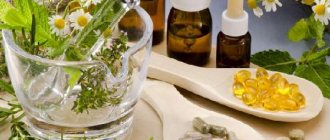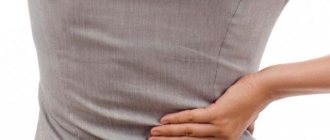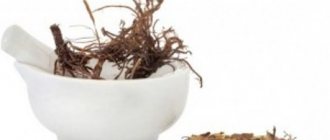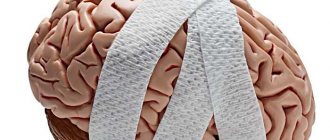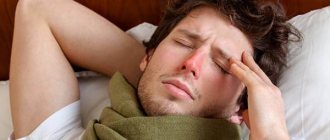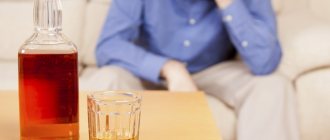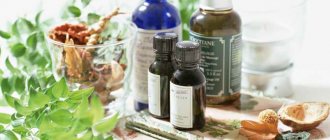Anxiety and depression are extremely common throughout the world. An estimated 264 million people suffer from anxiety and 322 million suffer from depression, according to the WHO. Anxiety and depression, along with concerns about the cost, ineffectiveness or side effects of standard medications, are common reasons why people seek home remedies for anxiety.
Increased anxiety and depression can cause significant symptoms and disruption in daily life and can contribute to insomnia, another common reason why people seek herbs for anxiety and fear. These factors can impair mental well-being.
We will identify some of the most common herbal remedies used for these conditions. We will also look at the use of folk remedies for dementia, as this condition is also associated with mental well-being. In addition, dementia is very common, affecting up to 50 million people worldwide, and the rate of the disease is accelerating.
Folk remedies for anxiety and depression
Kava (Piper methysticum)
The kava plant, native to the South Pacific, has a rich tradition of use for both therapeutic and ceremonial purposes. In one traditional kava ceremony, the root of the plant is cut into small pieces, which are chewed and then spat into a wooden bowl. The roots are then mixed with coconut milk and drunk. Scientifically speaking, chewing helps release the active ingredients in the kava plant, which can also be achieved by chopping or rubbing the roots.
Today we know that the kava plant is rich in kavalactones, which act as a mild muscle relaxant and help ease anxiety. Kava works in the same way as a benzodiazepine, a pharmaceutical drug, but with a milder and less sedating effect.
Kava is safe for short-term use, but should not be used long term as the plant may cause liver harm. Avoid using kava if you have a diagnosed liver disease, drink alcohol, or take any medications that affect the liver. If you decide to take kava for more than two weeks, it is recommended to have liver function tests every two to three weeks.
Gaia Herbs, Kava Kava Root, Herbal Extract, 1 fl oz (30 ml)
Herbal Remedies for Anxiety
The state of anxiety disorder is characterized by unreasonable constant worry. Such manifestations are one of the signs of depression. Often, after an examination, folk recipes based on specific types of medicinal herbs are recommended for use.
Borage (borage) is beneficial in treating anxiety. You will need 20 grams of finely chopped fresh herbs, which must first be washed and lightly dried on a napkin.
Transfer the prepared raw materials into a ladle. Steam 200 ml of boiling water. After cooling, express the medicine through a strainer. Drink a quarter glass every eight hours.
For mild forms of anxiety disorder, chamomile provides relief. It will take 3 hours. spoons of dried ground flower baskets, which are poured into a teapot and steamed with 250 ml of just boiled water.
After 15 minutes of infusion, pass the healing liquid through a strainer and immediately drink in full. Such sessions are repeated three times a day. It is recommended to drink chamomile tea before bed
Chicory effectively helps with anxiety. Fresh, washed chicory roots are finely chopped and then fried in a dry frying pan until the moisture evaporates.
Place a teaspoon of the medicinal mass into a saucepan with a glass of boiled water. Simmer on low heat for five minutes. Then the product is infused for six minutes, after which honey and milk are added to taste. Take 1/3 cup of the healing elixir in the morning and evening.
Melissa officinalis
Melissa officinalis is a delicious and versatile folk remedy for anxiety. Historically referred to as the "pleasure herb" or "heart's delight", due to its relaxing properties that promote feelings of calm and well-being. This gentle relaxant can help reduce stress and relieve mild anxiety. Thanks to its carminative properties, lemon balm can also relieve mild stomach discomfort. A great way to consume lemon balm is with your evening cup of tea to help you relax and calm down. Melissa has an excellent safety profile.
This is a wonderful herb that everyone should have in their home. It is easy to grow at home or can be purchased at iherb.com.
Frontier Natural Products, Organic Lemon Balm, Cut and Sifted, 16 oz (453 g)
Passionflower (Passiflora incarnata)
Passionflower (passion flower) is a beautiful plant known for its showy, colorful flowers and edible fruit. Grows well in tropical climates. The aerial parts of the flower are used for medicinal purposes as a relaxant with anti-inflammatory properties. The German Commission E has approved the use of passionflower for the treatment of insomnia and nervousness.
Another common use of this plant is to treat addictions, although clinical evidence for this is lacking. Passionflower has been studied in combination with clonidine, a pharmaceutical used in the treatment of opiate addiction. Opiate withdrawal has physical symptoms such as high blood pressure, nausea, vomiting, abdominal cramps, and diarrhea, in addition to emotional symptoms of anxiety, cravings, irritability, and depression. The results of the study are as follows: the combination of passionflower and clonidine was effective in reducing emotional and physical symptoms. Without the use of Passifdler, clonidine only relieved physical withdrawal symptoms.
Passionflower should not be used with monoamine oxidase inhibitors (MAOIs) or other sedative agents.
Now Foods, Passionflower, 350 mg, 90 Vegetarian Capsules
Related articles:
- Magnesium glycinate - instructions, preparations
- Vitamin B6 for the female body - why it is important
↑ Essential oils for stress
Relieving stress with essential oils is very effective. There are no side effects, and in addition to relieving stress, you are guaranteed an excellent mood and an increase in the overall tone of the body. Essentially, these are plant extracts that help you relax. The most commonly used oils to relieve stress are:
- Lavender. The oil of this plant will help get rid of excess tears, lift your spirits, and relax your muscles.
- Orange. Helps get rid of sadness and unnecessary disappointments. Increases vitality and also improves blood circulation.
- Ylang-Ylang. The oil perfectly supports the functioning of the heart and also relieves excess fatigue.
- Geranium. Helps normalize hormonal levels, failure of which can cause stress.
- Incense. Popular antidepressant. Helps with chronic insomnia, relieves stress.
- Bergamot. Bergamot essential oil is excellent for relieving anxiety and restlessness and is used in the treatment of depression.
The methods of using essential oils are very diverse. These could be aroma candles; It is also popular to add the extract to a bath or use it as a massage oil. The aromas of such substances have a positive effect on the general mood and psychological background. But you shouldn’t overdo it, since an overdose can lead to headaches and worsening well-being.
Chamomile (Matricaria recutita)
Chamomile is a member of the chamomile family. It has a rich tradition of using its relaxant and carminative properties, making it effective in relieving mild indigestion. Chamomile is often used in combination with other anti-anxiety remedies to help with insomnia.
Chamomile has an excellent safety profile and is a gentle herb that is easy to use. Chamomile should not be used by people who are allergic to plants in the ragweed or chamomile family. It is also best avoided by those taking blood thinning medications.
Nature's Way, Chamomile Flower, 350 mg, 100 Vegetarian Capsules
Hops (Humulus lupulus)
Many people are familiar with hops from their use in brewing. Hops give beer a bitter taste. Hops also have the ability to promote relaxation and sleep, a quality first noted in Europe among workers in hop fields who fell asleep on the job. Hops are often used in combination with other herbs to help with insomnia. It also acts as a phytoestrogen, which means it can mimic estrogen in the body. It is unclear what effect this may have, so caution is advised and not to use this herb in women who have had breast cancer or are at increased risk for it.
Hops have a bitter taste, so keep that in mind if you're brewing them. Standardized hop extracts are also available for those who do not like the bitter taste.
Nature's Way, Hops Flowers, 310 mg, 100 Capsules
Valerian (Valeriana officinalis)
Valerian has fragrant white or pink flowers that were used to create perfume centuries ago. Today, valerian is a popular folk remedy for anxiety and is often used in combination with other herbal sleep remedies.
It should be noted that you need to take valerian for several weeks to notice the effects, so it will not be useful for acute insomnia. Valerian can also be used in small doses throughout the day to relieve mild anxiety. Unlike many medications used to treat insomnia, it has the advantage of not being addictive.
Valerian has a good safety profile, but should be avoided during pregnancy/lactation and in children under 3 years of age. It is not recommended to be used as tea as it has a very unpleasant taste.
Eclectic Institute, Natural Valerian, 2 fl oz (60 ml)
Folk remedies to help with increased anxiety
A pathological condition characterized by excessive excitability of the central nervous system, unreasonable excitement and fear is called anxiety. Fear and anxiety are not our best “companions.”
It is much easier to cope with fear; it is enough to identify its cause and take measures to eliminate it. With anxiety, everything is more complicated, since in this condition, excitement and fear are far-fetched. A person often does not really understand what is bothering him.
Anyone can experience anxiety. But if this feeling occurs too often, or it accompanies you constantly, this is a reason to contact a specialist. Therapy for this pathological condition must be timely and appropriate. Good results in treatment can be achieved not only with the help of medications, but also with natural remedies from plants.
St. John's wort (Hypericum perforatum)
In ancient times, people hung St. John's wort over their front door to ward off evil, especially after the death of a loved one. Nowadays, St. John's wort is the subject of research due to its beneficial properties in treating mild to moderate depression. A 2008 Cochrane review examined this folk remedy for anxiety and concluded that St. John's wort was even more effective than placebo and as effective as standard antidepressants.
One of the major disadvantages of its use, however, is that it interacts with a number of medications, including blood thinners, oral contraceptives, immunosuppressants, and other medications. Avoid using St. John's wort if you are taking these or other strong medications. Also note that St. John's wort can cause photosensitivity, meaning it can cause sunburn when exposed to the sun.
Eclectic Institute, St. John's Wort, 300 mg, 90 Non-GMO Vegetarian Capsules
Ginkgo (Ginkgo biloba)
Originally from China, the ginkgo tree is now grown throughout the world. It is distinguished by the bright yellow color of its leaves in cold weather. Ginkgo biloba has received attention in the medical community for its ability to reduce symptoms of Alzheimer's disease or other types of dementia in older adults. Although the exact mechanism is unclear, ginkgo may help improve blood circulation in the brain and has a protective effect on nerve cells. Although the research is still inconclusive, there have been several experiments proving this effect.
A 2010 systematic review concluded that ginkgo helped improve cognition scores in people with Alzheimer's disease. One study found a similar effect compared to the standard drug Aricept, which is used to treat Alzheimer's disease. We hope that further research will continue on this issue so that clearer conclusions can be drawn.
Ginkgo may interfere with blood thinners and many other medications, so check with your doctor or naturopath before taking the plant.
Doctor's Best, Extra Strength Ginkgo, 120 mg, 120 Veggie Caps
Rhodiola (Rhodiola rosea)
Also known as "Arctic root", Rhodiola rosea grows well in cold weather, at high altitudes in the mountains of Europe and Asia. Its root has traditionally been used to help improve mood and concentration and treat fatigue. Rhodiola rosea is a proven folk remedy for anxiety and depression. Rhodiola was of interest to Soviet researchers, helping to improve the endurance of athletes, soldiers and astronauts. Interest in this fascinating plant stems from its properties as a plant adaptogen and its ability to help the body combat physical and emotional stress. Today, Rhodiola is used to treat anxiety, depression and chronic fatigue, although research in these areas is very limited.
Rhodiola is a highly stimulating adaptogen and may increase irritability in some people. At higher doses it may cause side effects like dizziness, dry mouth and agitation.
Ways to independently get rid of anxiety and fear
It is difficult to find a person who at least once in his life has not experienced anxiety and reacted to stressful situations. The reasons for anxiety and fear are not always real, but not all people have a stable psyche, and not everyone can easily cope with incoming negativity. Many people are accustomed to turning to psychologists at the slightest internal discomfort, spending money and time, but treatment does not always bring the expected result. Few people think about how to get rid of fear and anxiety on their own. There are several effective methods, each of which should be used depending on the cause of concern.
Ginseng (Panax ginseng)
Many people are familiar with this classic adaptogen. The name Panax comes from the word "panacea", which roughly means "panacea for all diseases". Ginseng is known for its fork-shaped root, which is part of the plant that is used medicinally, especially in traditional Chinese medicine. This adaptogen has been historically used for its ability to help fight fatigue and prevent infections. Although the exact mechanism is unclear, ginseng is thought to have these effects due to its anti-inflammatory properties and ability to reduce the stress hormone cortisol. Ginseng is approved by the World Health Organization and German health authorities for the treatment of mental disorders and physical exhaustion.
Disadvantages of using ginseng include its price: it is a very expensive plant. This high cost also has a secondary effect: many products on the market may be adulterated with cheaper varieties or with added substances such as stimulants or caffeine. For this reason, it is best to avoid powdered ginseng products. You should also not take ginseng for more than 12 weeks in a row. Ginseng should not be used with anticoagulants.
To develop an individual program for naturopathic correction of anxiety and anxiety, as well as overall health of the body, we recommend contacting us at health-coaching.
Causes of nervous disorders and stressful situations
The causes of stress and nervous disorders are divided into four categories:
| Physical | Contrasting temperature throws; atmospheric pressure surges |
| Psychological | Emotional outburst (joyful, negative); |
| Chemical | Effect of harmful substances |
| Biological | Injuries; muscle overload; viral diseases |
The state of his nervous system depends on how a person perceives others and evaluates his capabilities. A nervous breakdown can occur due to the illness or death of a loved one, conflict situations, or an upcoming important event.
A nervous breakdown manifests itself in the form of anxiety, restlessness, and tension. If you don't pay attention to the signs, you're not far from depression. Let's figure out how to calm the nervous system and bring your state of mind back to normal. First you need to know what signs indicate the onset of a nervous disorder.
